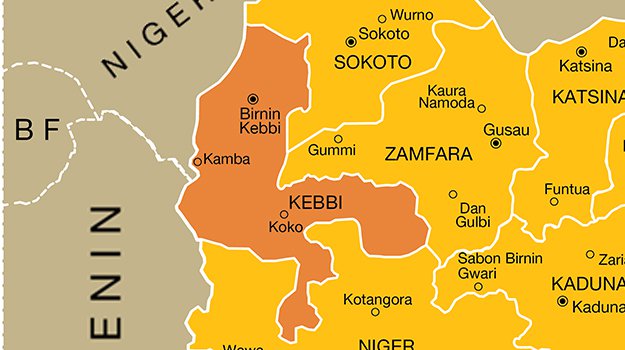There was deep sorrow and fear in Maga community, Danko Wasagu Local Government Area of Kebbi State, on Monday, after bandits attacked the Government Girls Comprehensive Senior Secondary School (GGCSS) in the early hours of the morning. The attackers killed the school’s Vice Principal, Hassan Yakubu Makuku, and kidnapped an unspecified number of female students.
Residents said the bandits stormed the school around 5 a.m. without any resistance, leaving the community in panic and shock. The attack is the latest in a series of security breaches targeting schools in northern Nigeria, reviving painful memories of earlier mass abductions in states like Zamfara, Katsina, and Niger.
A resident of Maga who confirmed the incident described the situation as frightening and heartbreaking. “The attack has created panic among residents of Maga. We are now in fear and mourning,” he said.
According to him, the Vice Principal was shot while trying to defend the students. “He was shot as he tried to protect his students from being taken by the bandits. It’s a great loss for the community and the school,” the resident added.
This latest incident adds to the growing number of school attacks carried out by armed groups in the North-West and North-East regions. Over the past decade, schools—especially girls’ schools—have become major targets for bandits and insurgents seeking ransom or attempting to instill fear in local communities.
Nigeria first witnessed global attention on school kidnappings with the 2014 Chibok abduction in Borno State, where Boko Haram fighters kidnapped 276 schoolgirls. Since then, more than 1,000 schoolchildren have been kidnapped across several northern states, according to various security reports and civil society groups.
In Kebbi State itself, a similar attack in June 2021 saw bandits invade the Federal Government College, Birnin Yauri, abducting over 80 students. Many of them were held for months before their eventual release in batches. Monday’s attack in Maga now adds to the history of insecurity that parents, students, and teachers in the region continue to struggle with.
Residents said the bandits arrived on motorbikes, a common tactic used by armed groups operating in forested areas around the North-West. Because the attack happened before dawn, many of the girls were still in their hostels when the attackers broke in.
There was no security presence available to repel the bandits, and they reportedly moved through the school freely. The residents said it all happened very quickly, leaving the community helpless.
Vice Principal Hassan Yakubu Makuku is being mourned as a hero in the community. Residents said he tried to stand between the bandits and the students in an attempt to prevent the kidnappings. Unfortunately, he was shot at close range during the confrontation.
Teachers and community leaders described Makuku as a dedicated educator who had served in the school for years. His death, they said, is not only a personal loss to his family, but a major blow to the entire school system in the area.
A teacher who asked not to be named said the late Vice Principal had always been passionate about protecting the students. “He treated the girls like his own children. What happened is painful, and we will never forget his sacrifice,” he said.
After the attack, residents remained indoors in fear of further violence. Many parents rushed to the school to check on their children, and some families have already begun withdrawing their daughters, fearing that the bandits might return.
Local shops remained closed, and movement around the community was limited. Some residents reported that they could still hear distant gunshots hours after the attack, raising suspicion that the bandits may still be operating nearby.
The emotional impact on the students is also expected to be heavy. Psychologists say children who witness school attacks often suffer long-term trauma, fear of returning to school, and loss of concentration.
As of Monday afternoon, neither the Kebbi State Government nor the police had issued an official statement about the attack. However, residents say security agents have begun arriving in the area to assess the situation and search for the kidnapped students.
In previous incidents, security agencies have often launched joint operations with local vigilante groups, though success rates vary due to the difficult terrain and the mobility of the bandits.
Parents and community members are calling on both the state and federal governments to take urgent action. Many say they are disappointed that school attacks continue despite repeated promises to make schools safe across the country.
The attack once again raises questions about the safety of schools in Nigeria, especially in rural areas where security presence is thin. Education advocates warn that if such attacks continue, more parents will keep their children—especially girls—out of school, worsening the already severe out-of-school crisis in northern Nigeria.
With the loss of Vice Principal Makuku and the uncertainty surrounding the kidnapped students, the people of Maga now join the long list of communities seeking justice and stronger security measures.

